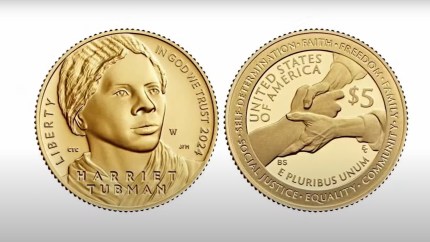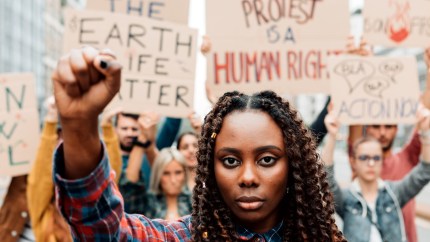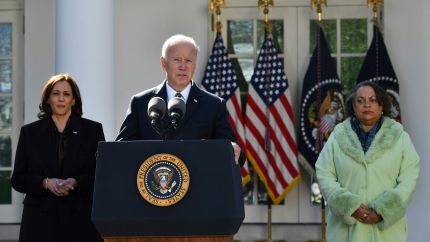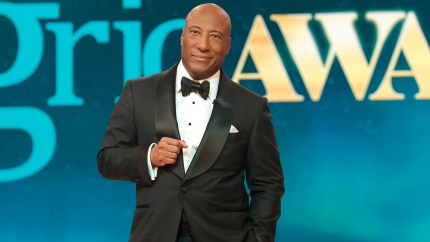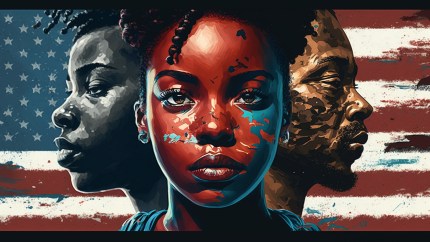Do you want to be free? Harriet Tubman and the making of many messiahs
As theGrio celebrates Women's History Month, how can the spiritual tenacity of Harriet Tubman inspire a new collective activism?
“Notes on faith” is theGrio’s inspirational, interdenominational series featuring Black thought leaders across faiths.
“In my mind, I see a line. And over that line I see green fields and lovely flowers and beautiful white women with their arms stretched out to me over that line, but I can’t seem to get there no-how. I can’t seem to get over that line.” Viola Davis quoted this sentiment by Harriet Tubman in her compelling 2015 Emmy acceptance speech, adding, “Let me tell you something: the only thing that separates women of color from anyone else is opportunity.”
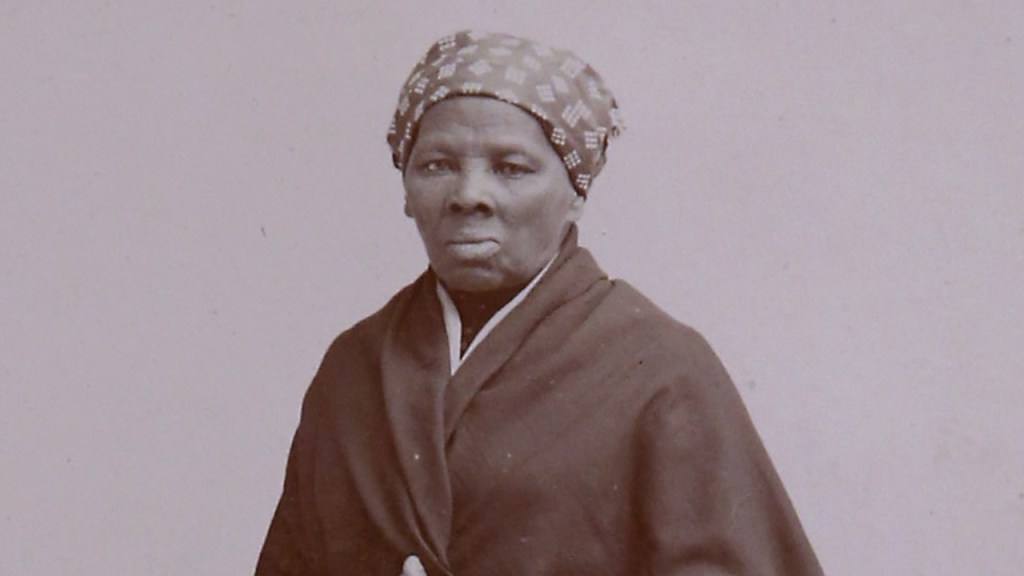
As we reflect on both Harriet Tubman Day (March 10) and National Equal Pay Day (March 12) amid our ongoing celebration of Women’s History Month, Tubman’s life and words remind us of the distinct experience of women of African ancestry when it comes to accessing opportunities often afforded to non-Black women.
One of the most recognizable symbols of liberation in U.S. history, Harriet Tubman’s (1822 – 1913) extraordinary contribution to our legacy continues to reverberate for us all, in large part due to her intersectional identity as a Black woman. Affectionately known as “Black Moses,” her narrative is a Black messiah story of a deliverer who continues to captivate people near and far: She was a conductor of the Underground Railroad, a spiritual sage, abolitionist, spy, clairvoyant, nurse, and astrologer. Tubman possessed unique attributes that delivered myriad people, including more than 700 kidnapped ancestors reportedly liberated from enslavement in the Combahee River Raid. We could imagine such a messiah today — and not necessarily an individual with these attributes, but many of us who possess the specific aspects to become a collective messiah.
Harriet Tubman’s courageous efforts have inspired so many. What better way to reflect on her life, words and bravery than to embrace our beautiful Black strength in freeing ourselves in every realm of society; cultivating not one, but many messiahs from among us?

There is ample evidence that Tubman is still igniting our imaginations, inspiring us to rise to the occasion in our respective areas of influence. Tubman’s assorted contributions to society have been portrayed in film and on television by the likes of Cynthia Erivo in the biopic “Harriet” and Aisha Hinds in the television series “Underground.” Beyond the silver screen, television and literature, we also find a soundscape in Guggenheim Award recipient Nkeiru Okoye’s opera, “Harriet Tubman: When I Crossed That Line,” capturing not only the impact of her mind and might but a profound insight into Tubman’s messianic role in the struggle for freedom, and her humanity amid an otherwise harrowing legend. Within the enveloping melody of the aria “I am Moses the Liberator,” we find a musical celebration of Black womanhood and resilience, challenging stereotypes, and amplifying disinherited Black voices.
Indeed, crafting freedom requires both resistance and creativity.
So where can we place our focus today, when it comes to liberation? Our ancestors have cautioned that we must look inward, while also being mindful of how our freedoms may displace or overlook others. They have urged our liberation from oppressed systems that privilege the extraction of resources and loss of lives, as we are seeing in Gaza and the Congo. They insist upon our faith: Do we believe we can be liberated from high rates of infant and maternal mortality among Black women by uplifting the justice warriors building a framework to address these disparities?
In this and so many other instances, “Do you want to be free?” is an essential question, foregrounded as the result of lives like Harriet Tubman, who also reminds us that when we do liberating work, standing in solidarity with marginalized communities, it must be done with consent from those we advocate for.
However, sometimes we face oppression because we prefer to stay in line with how things have always been and hold fast to that which is familiar. We can’t assume everyone wants change, or to confront the power brokers of oppression. There are those who are comfortable in the system as long as they have a title, an exemption from direct oppression, or a presumably privileged position among the oppressed — but can there ever be a sustained position of privilege when the caste system is designed to exclude and marginalize anyone outside of the dominant culture?
Recommended Stories
Let us not become distracted if we find ourselves among a cohort of those who are invested in the status quo. Rather, find solace in those who may not need much convincing; who understand that although the journey to the promised land may not be easy, it is worth pressing forward for ourselves, our ancestors, and — most certainly — our children.
“I tell you the truth, anyone who believes in me will do the same works I have done, and even greater works” — John 14:12.
We imagine Harriet Tubman echoing the same words of her Christ: “You will do the same works I have done and even greater because of who and what you believe.”
As we honor Tubman’s legacy during Women’s History Month and beyond, let “I am Moses the Liberator” be your theme. Remember the words of Dr. Delores Williams and understand that “the oppressed of the oppressed” have a voice. It is our duty to ensure their voices are heard loud and clear. Even in the midst of all the challenges, these reflections — and those of the many women who have urged us toward liberation — lead us to continue the timeless legacy of the Black Moses — the messiah — who ushers us into a new dimension.
In celebration of Women’s History Month and women worldwide, we embark on a journey that traverses the rich tapestry of Black faith, resilience, and activism. Together, let us continue the journey of empowerment and liberation, inspired by the enduring legacy of Harriet Tubman and the countless other Black women who have paved the way for generations to come.
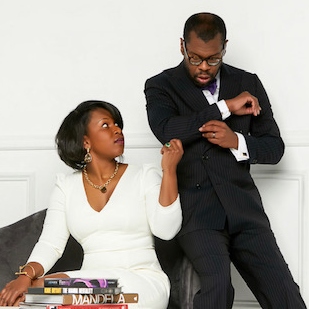
Rev. Dr. Alisha Lola Jones is a faith leader helping people to find their groove in a fast-paced world, as a consultant for various arts and faith organizations and professor of music in contemporary societies at the University of Cambridge in Cambridge, England. She is an award-winning author of Flaming? The Peculiar Theopolitics of Fire and Desire in Black Male Gospel Performance (Oxford University Press). For more information, please visit DrAlisha.com.
Rev. Calvin Taylor Skinner is dedicated to empowering frontline communities in Knoxville, Tenn. and the United Kingdom. He uses faith and policy to address energy justice, criminal justice reform, voter education/mobilization, electoral politics, and global affairs. Along with his wife, Rev. Dr. Alisha Lola Jones, they lead InSight Initiative, a consulting firm focusing on capacity building and live events production.
Never miss a beat: Get our daily stories straight to your inbox with theGrio’s newsletter.
